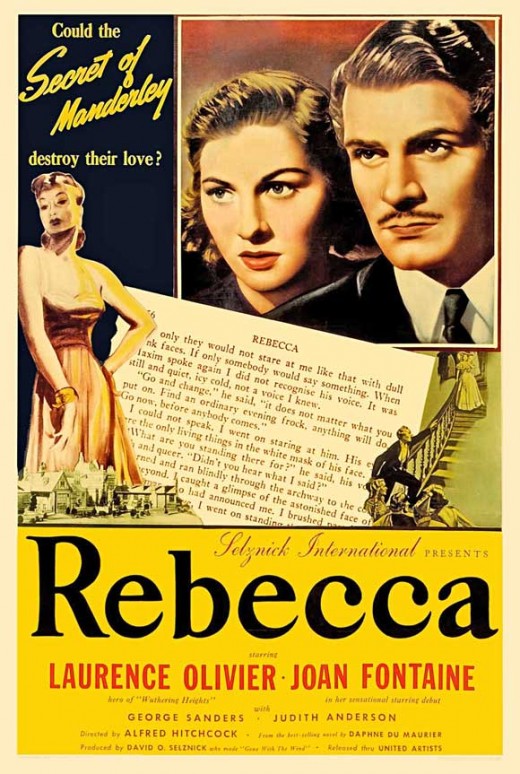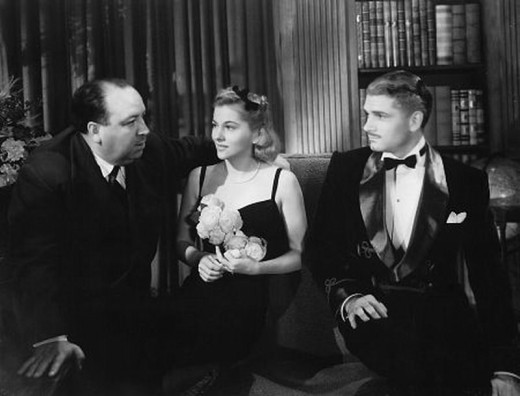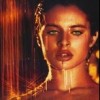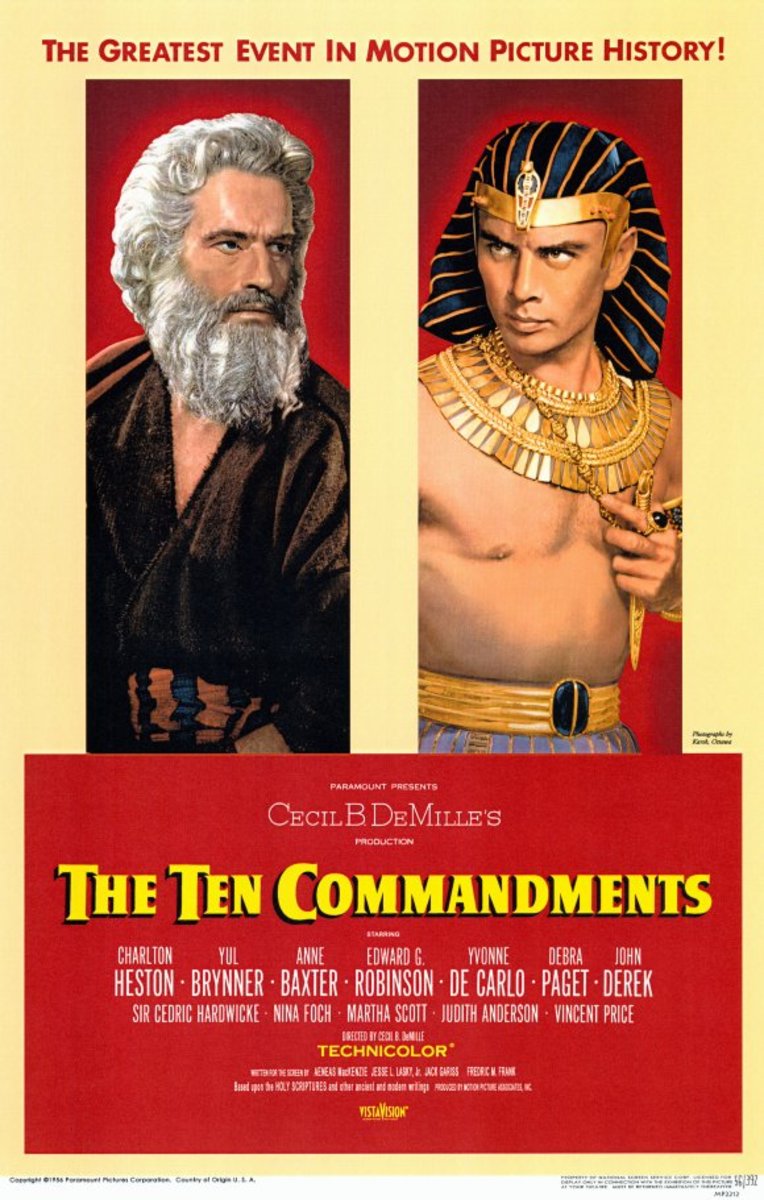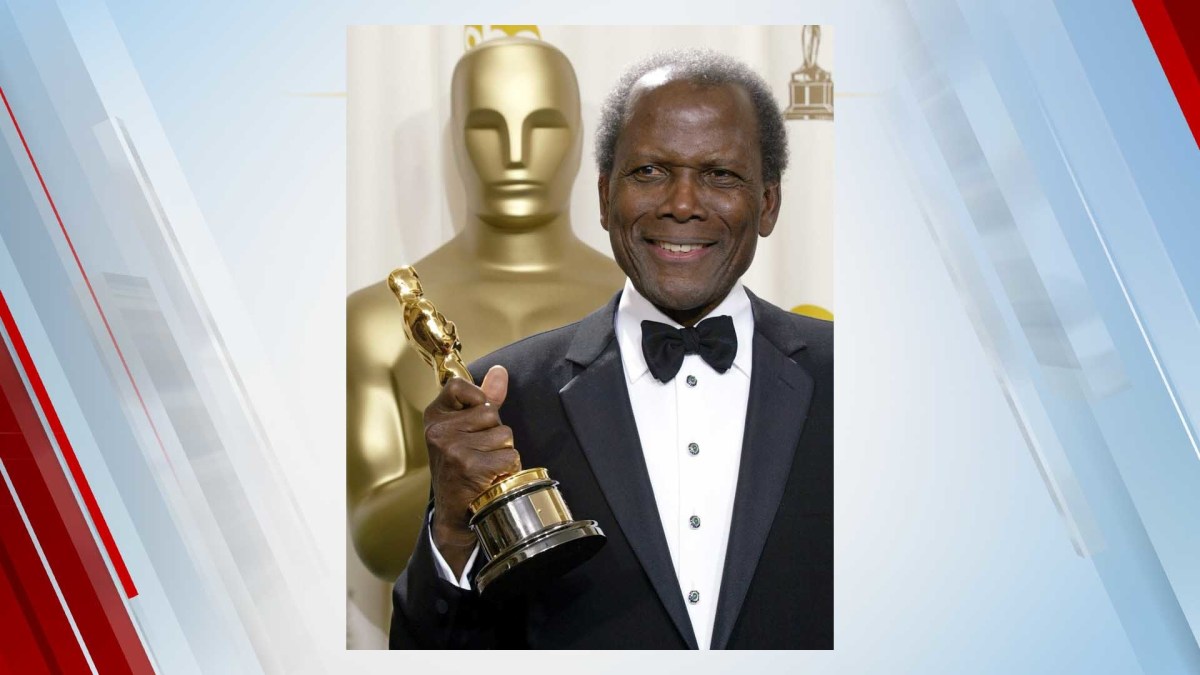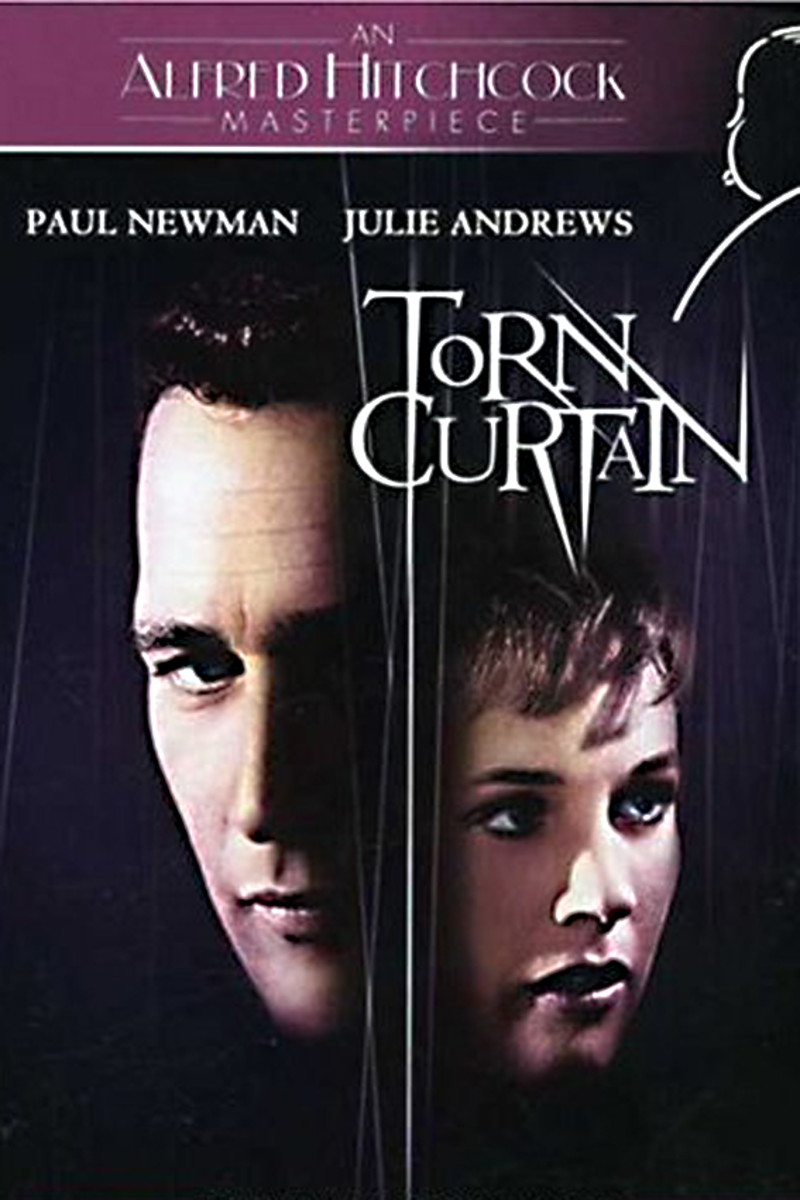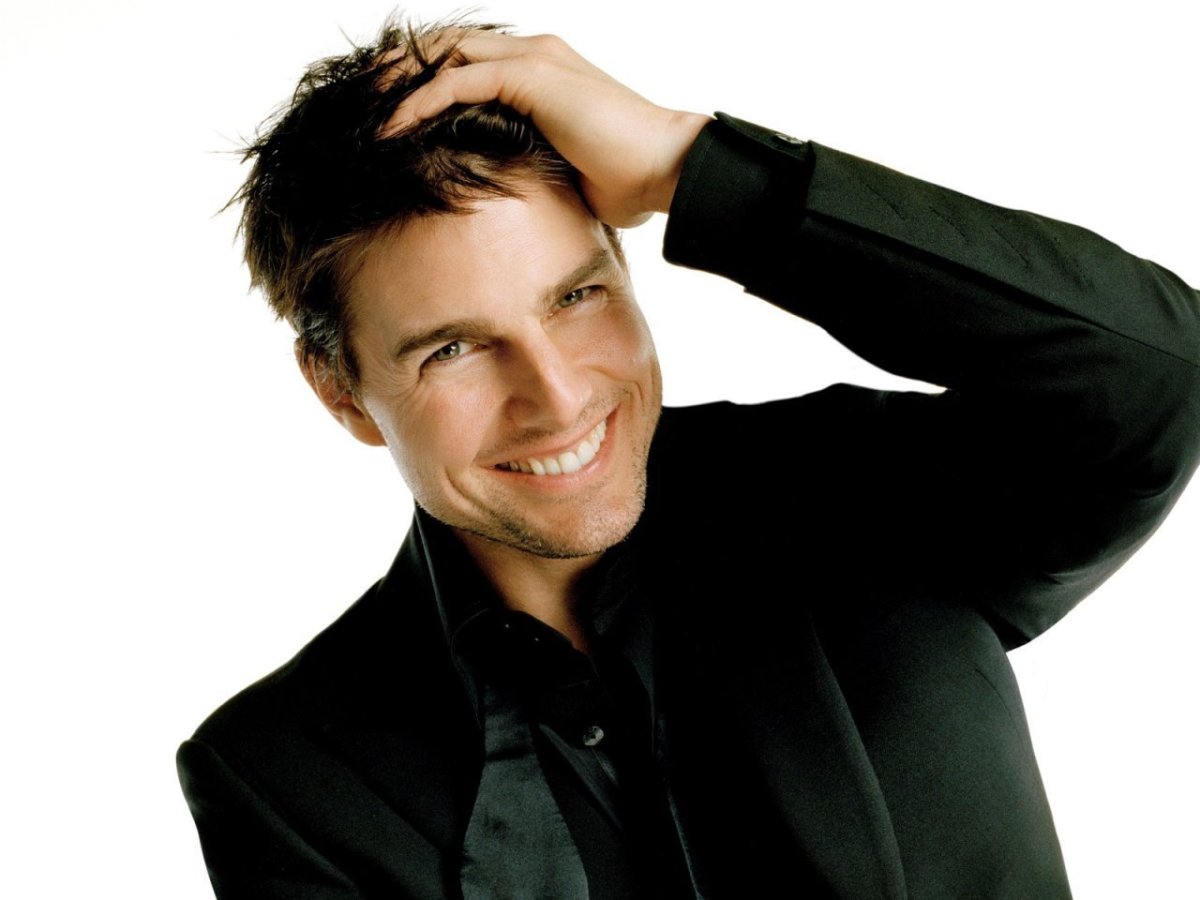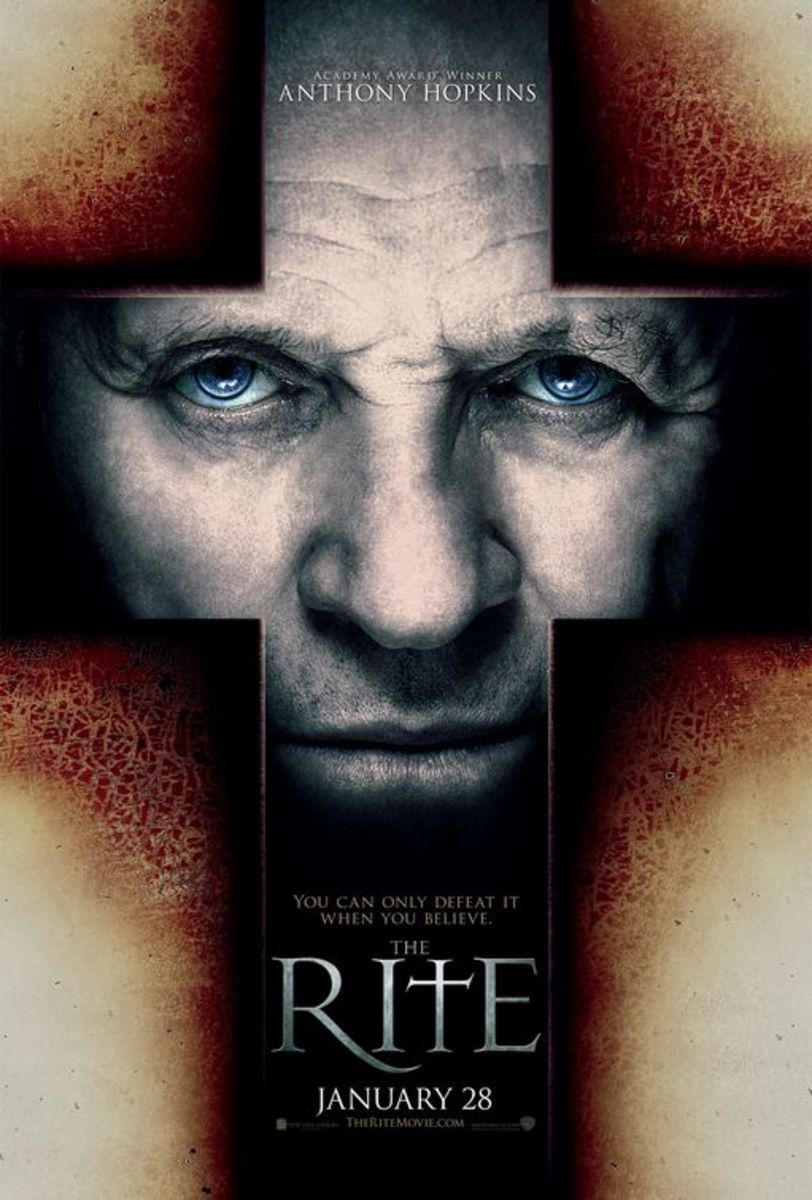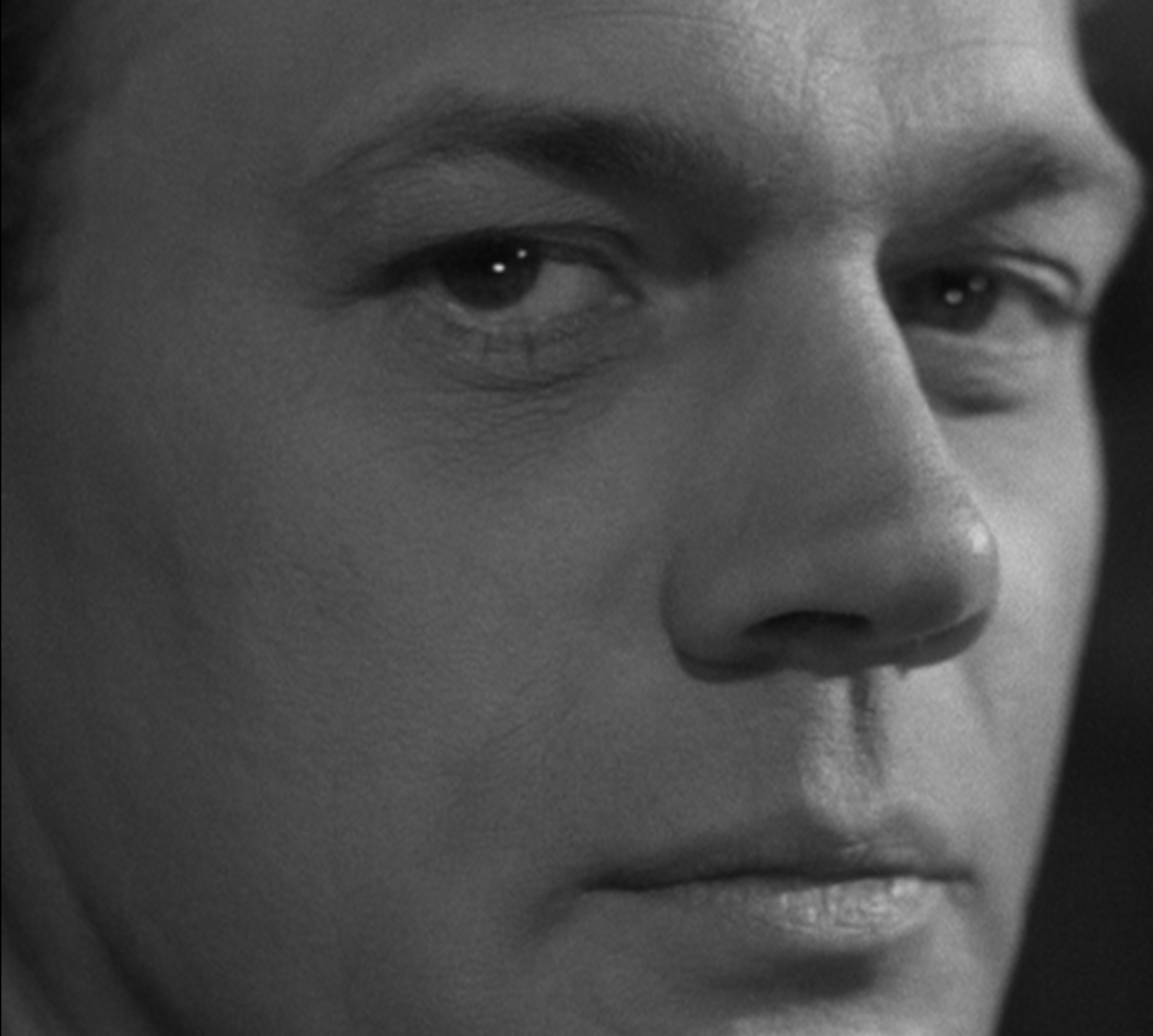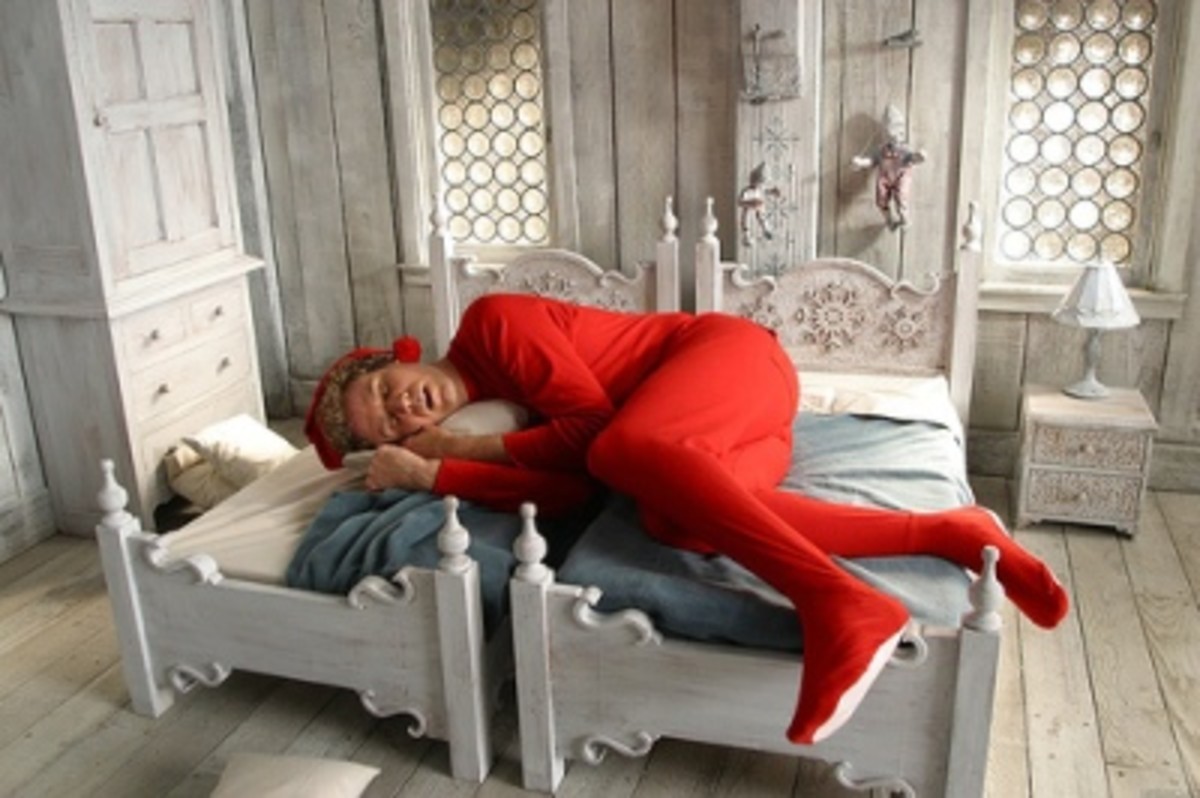Rebecca (1940) - Illustrated Reference
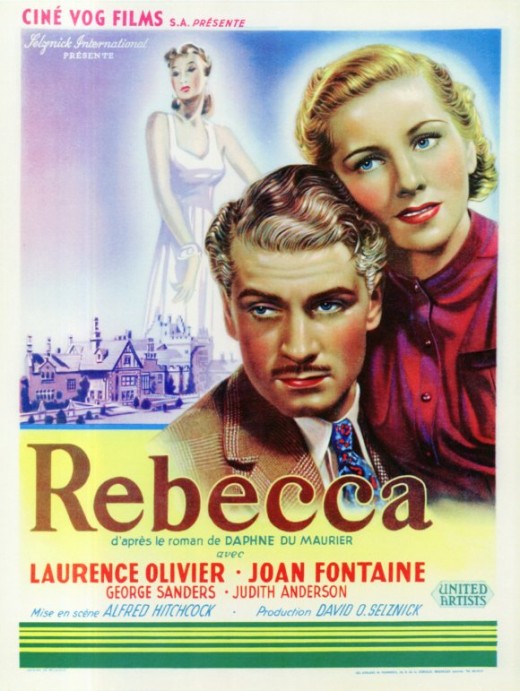
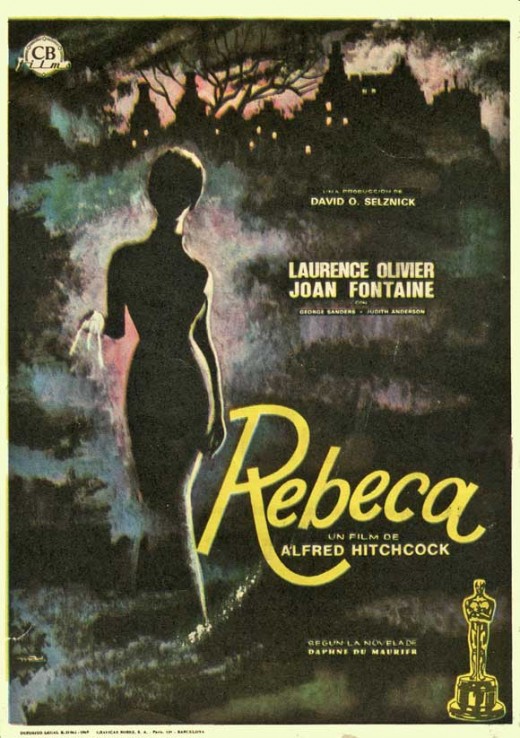
Rebecca was directed by Alfred Hitchcock and it premiered on March 27, 1940. Starring Laurence Olivier, Joan Fontaine, George Sanders, Judith Anderson, Nigel Bruce, Gladys Cooper, Reginald Denny, C. Aubrey Smith, Florence Bates, Melville Cooper and Leo G. Carroll. Screenplay by Robert E. Sherwood and Joan Harrison, based on the novel by Daphne du Maurier. Music by Franz Waxman. 130mins.
Wealthy Maxim de Winter falls in love with a shy young lady while staying at Monte Carlo. They marry and he takes her home to Manderley, his country estate in Cornwall, England. The new Mrs. de Winter discovers that Maxim is still troubled by the death of his first wife Rebecca, who still has a strange hold on everyone at Manderley.
Rebecca was written by English author Daphne du Maurier (1907-1989) and was first published in 1938, du Maurier also wrote Jamaica Inn (1936) and The Birds (1952) both directed by Hitchcock.
Alfred Hitchcock (1899-1980) had directed a series of critically acclaimed thrillers in Britain in the thirties including The Man Who Knew Too Much (1934), The 39 Steps (1935), Sabotage (1936) and The Lady Vanishes (1938). Attracting the attention of Hollywood he signed a seven year contract with American producer David Selznick and moved to America.
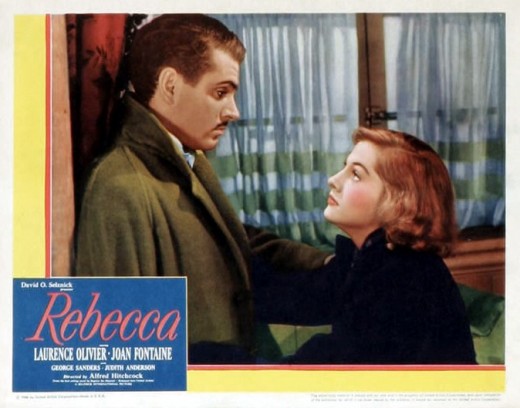
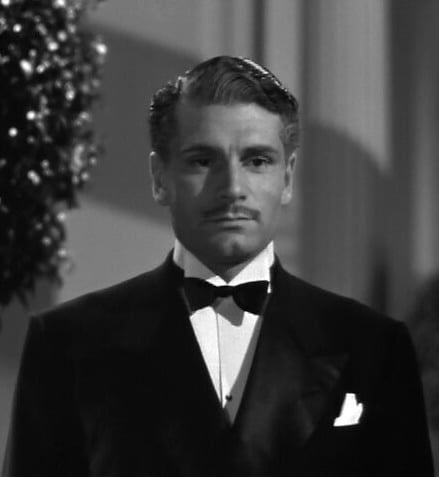
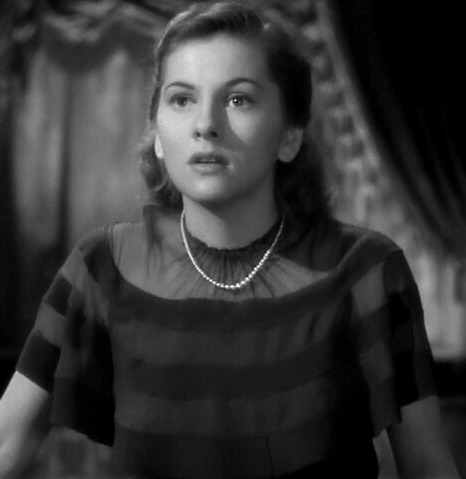
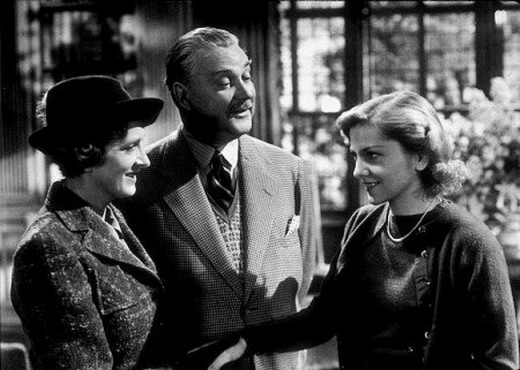
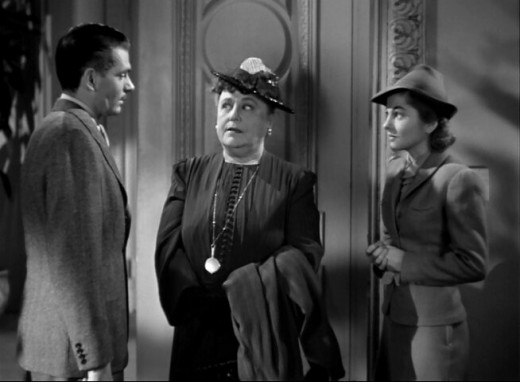
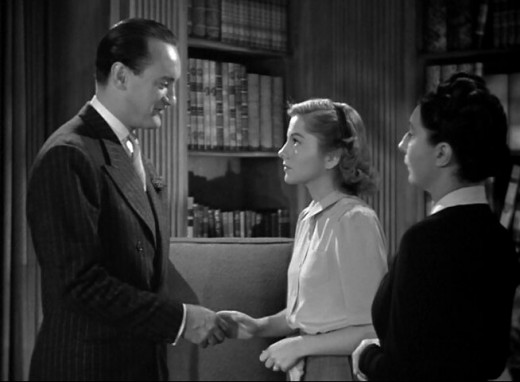
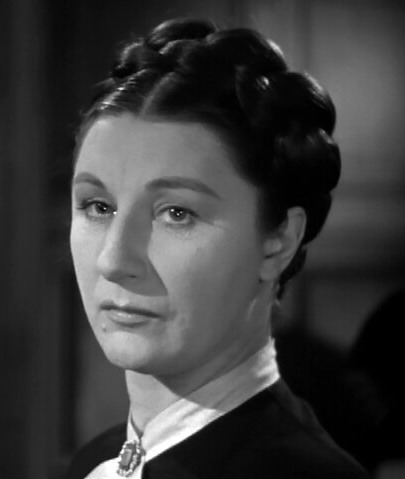
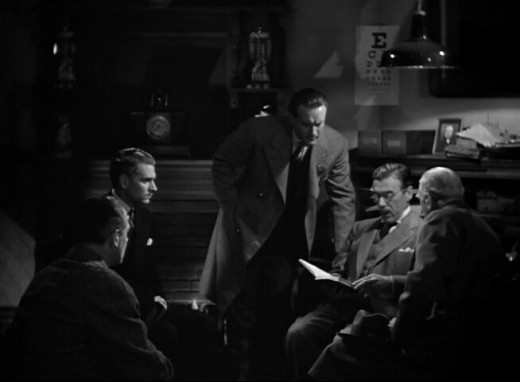
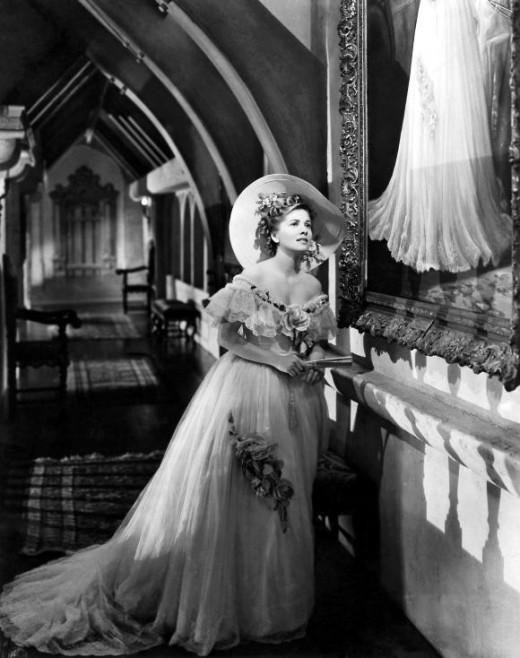
Maxim de Winter: You thought I loved Rebecca? You thought that? I hated her!
Laurence Olivier (1907-1989) / Maxim de Winter
Born in Surrey, England, one of the greatest actors of all time Laurence Olivier was Oscar nominated 12 times, winning twice, a special award for Henry V (1944) “For his outstanding achievement as actor, producer and director in bringing 'Henry V' to the screen.” And won Best Actor for Hamlet (1948), he also received an Honorary Award in 1979 “For the full body of his work, for the unique achievements of his entire career and his lifetime of contribution to the art of film.”
Olivier’s other nominations were for – Wuthering Heights (1939 Best Actor), Rebecca (1940 Best Actor), Henry V (1944 Best Actor), Hamlet (1948 Best Director), Richard III (1955 Best Actor), The Entertainer (1960 Best Actor), Othello (1965 Best Actor), Sleuth (1972 Best Actor), Marathon Man (1976 Best Supporting Actor) and The Boys from Brazil (1978 Best Actor).
Joan Fontaine (1917-) / Mrs. De Winter
Born in Tokyo, Japan to English parents, Joan Fontaine won a Best Actress Oscar for Alfred Hitchcock’s Suspicion (1941) and was nominated for Rebecca (1940) and The Constant Nymph (1943). She is the sister of Olivia de Havilland.
Her films include – Gunga Din (1939), Jane Eyre (1943), Letter from an Unknown Woman (1948), The Emperor Waltz (1948), Born to be Bad (1950), Ivanhoe (1952), Casanova’s Big Night (1954), Beyond a Reasonable Doubt (1958), Voyage to the Bottom of the Sea (1961), and The Witches (1966).
George Sanders (1906-1972) / Jack Favell
Born in Saint Petersburg, Russia to English parents, George Sanders won a Best Actor Oscar for All About Eve (1950 as Addison DeWitt). His films include – Lloyds of London (1936), The Saint Strikes Back (1939 as Simon Templar), Confessions of a Nazi Spy (1939), Foreign Correspondent (1940), The Black Swan (1942), The Lodger (1944), The Picture of Dorian Gray (1945), The Ghost and Mrs. Muir (1947), Samson and Delilah (1949), Ivanhoe (1952 as De Boise-Guilbert), King Richard and the Crusaders (1954), Solomon and Sheba (1959), Village of the Damned (1960), A Shot in the Dark (1964), The Jungle Book (1967 voice of Shere Khan) and The Kremlin Letter (1970).
Mrs. Danvers: Why don't you go? Why don't you leave Manderley? He doesn't need you... he's got his memories. He doesn't love you, he wants to be alone again with her. You've nothing to stay for. You've nothing to live for really, have you? Look down there. It's easy, isn't it? Why don't you? Go on... Go on... Don't be afraid...
Judith Anderson (1897-1992) / Mrs. Danvers
Born in Adelaide, Australia, Judith Anderson was Oscar Nominated Best Supporting Actress for Rebecca (1940). Her films include – Kings Row (1942), Edge of Darkness (1943), Laura (1944), And Than There Were None (1945), The Strange Love of Martha Ivers (1946), Salome (1953), The Ten Commandments (1956 as Memnet), Cat on a Hot Tin Roof (1958), Cinderfella (1960), A Man Called Horse (1970) and Star Trek III The Search for Spock (1984 Vulcan High Priestess).
Nigel Bruce (1895-1953) / Major Giles Lacy
Gladys Cooper (1888-1971) / Beatrice Lacy
Reginald Denny (1891-1967) / Frank Crawley
C. Aubrey Smith (1863-1948) / Colonel Julyan
Florence Bates (1888-1954) / Mrs. Edythe Van Hopper
Melville Cooper (1896-1973) / Coroner
Leo G. Carroll (1886-1972) / Dr. Baker
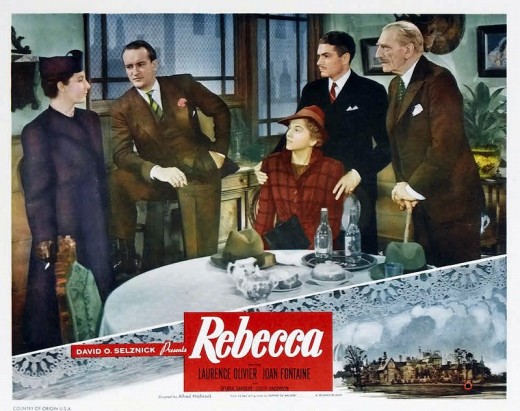
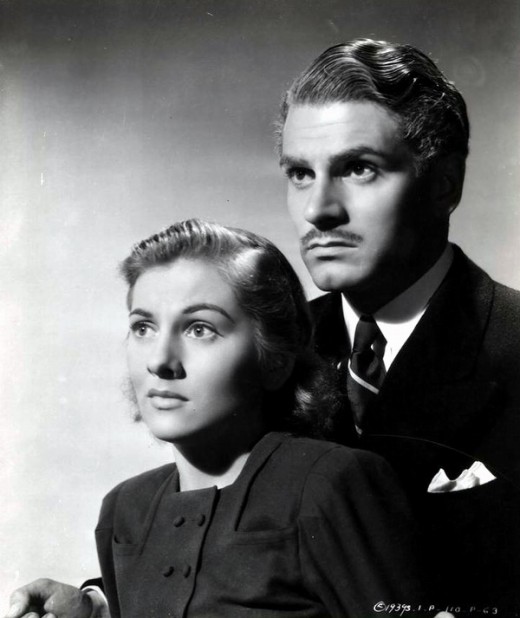
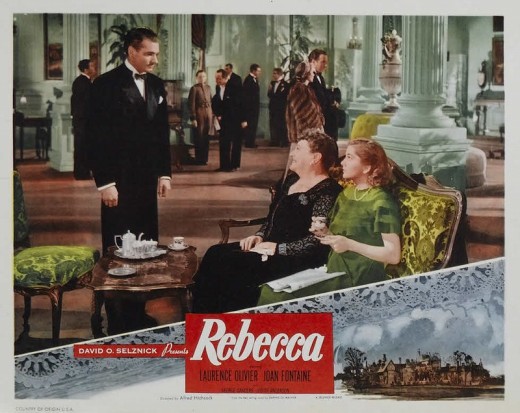
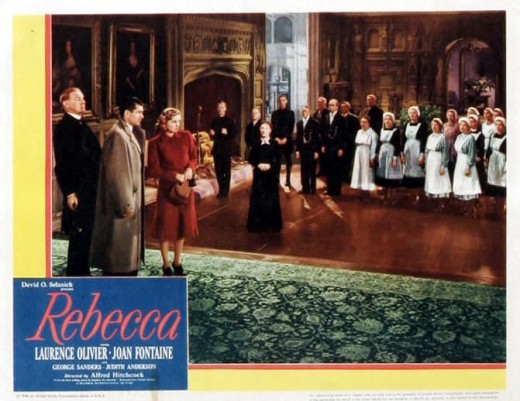
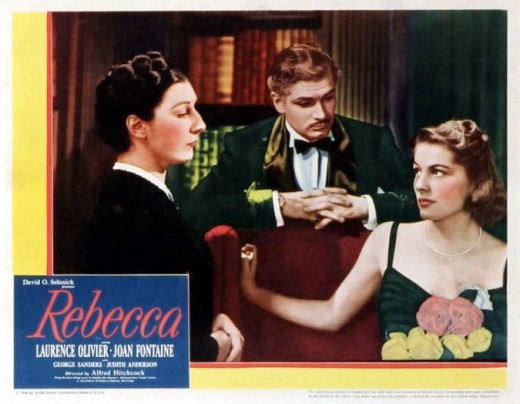
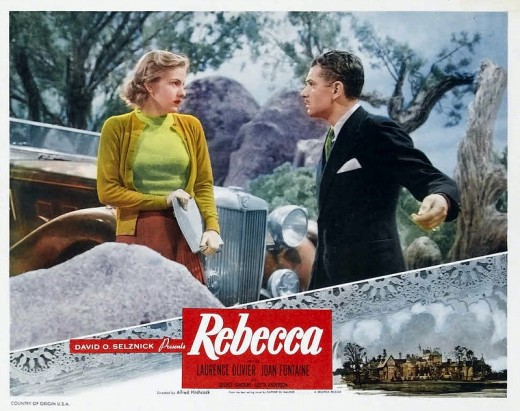
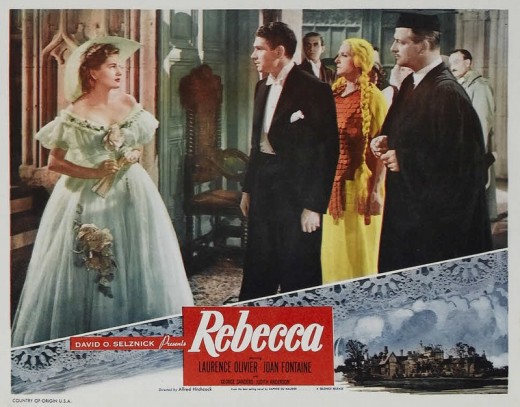
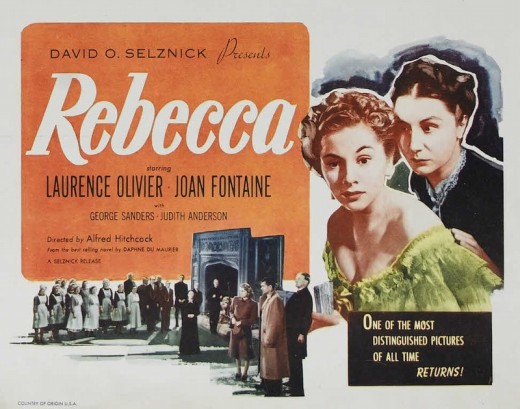
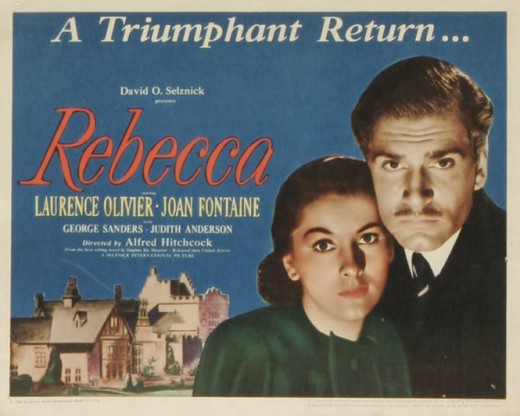
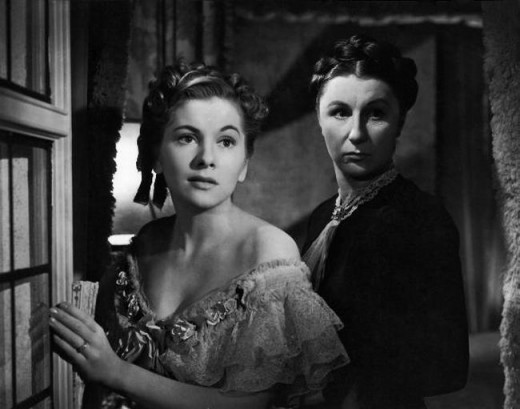
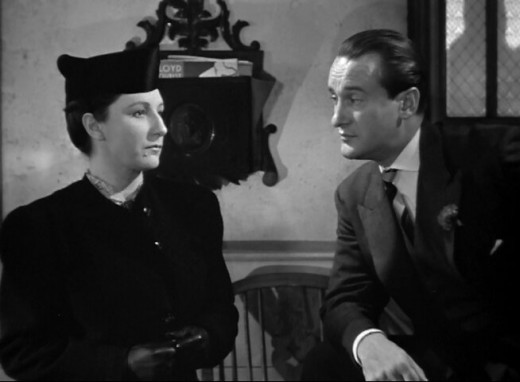
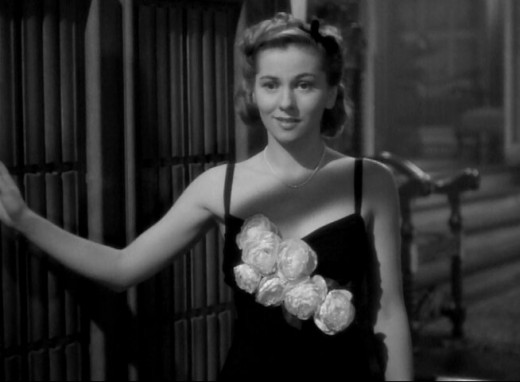
[opening narration] "Last night I dreamt I went to Manderley again..."
Rebecca was Hitchcock’s first American movie and his only movie to win a Best Picture Oscar. Hitch was Oscar nominated 5 times for Best Director and never won, he received the Irving G Thalberg Memorial Award in 1968.
When Selznick bought the rights to the novel he had originally wanted Ronald Colman and Carole Lombard to play the leads. Olivier and William Powell were his second choices for Maxim. Robert Donat and Leslie Howard were also considered.
Maureen O’ Hara was up for the role of Mrs de Winter, Laurence Olivier wanted his lady love Vivien Leigh to play the part, but the studio and Hitchcock felt that she didn’t look convincingly innocent and shy enough for the role. Vivien might have been more suitable as the cold-hearted and beautiful “Rebecca” if they had considered making a prequel.
To make Joan Fontaine look more uneasy in the role Hitchcock whispered to her that everyone on the set hated her making the young actress feel more insecure and suspicious of everyone. And Olivier treated her badly because Vivien didn’t get the part.
Joan Fontaine’s character is not named in the book or the film, she is merely referred to as the new Mrs. de Winter. It’s funny, fascinating and a little maddening watching the film and seeing all the main characters including her husband finding various ways to avoid saying her name, and a little unrealistic too.
Maxim: I knew where Rebecca's body was, lying on that cabin floor on the bottom of the sea.
Mrs. de Winter: How did you know, Maxim?
Maxim: Because... I put it there.
One important difference between the book and the film is that in the novel Maxim shoots Rebecca dead in her boat after she taunts him about her numerous love affairs, but in the film she trips over and hits her head hard on the ship’s tackle, dying from her injuries, her death an accident.
The reason for the change is that the US censor insisted that “an unpunished murder cannot be approved” and the studio wanted the film to have a happy ending.
Manderley in long shot was a miniature surrounded by miniature trees, Selznick scoured America for a suitable gothic mansion for Manderley and couldn’t find one.
The film famously ends with a tracking shot to Rebecca’s burning bed and a close shot of her pillow embroidered with the letter ‘R’. The producer originally wanted the film to end with the smoke from the burning mansion spelling out the letter ‘R’ in the sky.
Hitchcock’s cameo is near the end of the film, outside a phone booth.
Mrs. Danvers: You thought you could be Mrs. de Winter, live in her house, walk in her steps, take the things that were hers! But she's too strong for you. You can't fight her - no one ever got the better of her. Never, never. She was beaten in the end, but it wasn't a man, it wasn't a woman. It was the sea!
The late Rebecca’s biggest fan was the head housekeeper Mrs. Danvers who worshipped the former Mrs. de Winter and loathed the new Mrs. de Winter, at one point urging her to jump to her death because she has “nothing to live for”.
Judith Anderson’s performance as the evil Mrs. Danvers was quietly menacing, she is rarely seen walking and sometimes seems to be gliding into shot like a spectre, her infatuation with Rebecca could be interpreted as sexual. Danvers is one of cinema’s great villains.
Rebecca was nominated for 11 Oscars – Best Actor (Laurence Olivier), Best Actress (Joan Fontaine), Best Supporting Actress (Judith Anderson), Best Director (Alfred Hitchcock), Best Music (Franz Waxman), Best Writing, Best Art Direction, Best Editing, Best Visual Effects and winning for Best B/W Cinematography and Best Picture.
It is ironic that Hitchcock’s only big Oscar win wasn’t for one of his famous thrillers but for a brooding gothic melodrama. Nevertheless Rebecca is a Hollywood classic that stands tall as one of Hitchcock’s masterpieces.
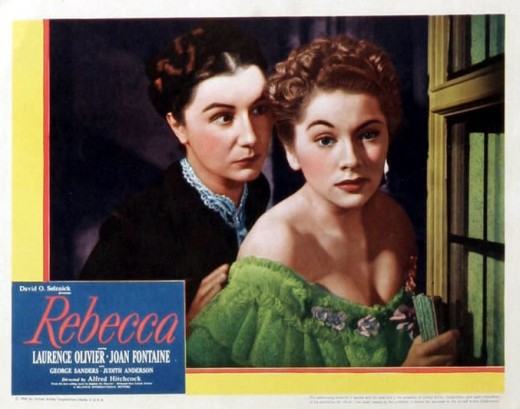
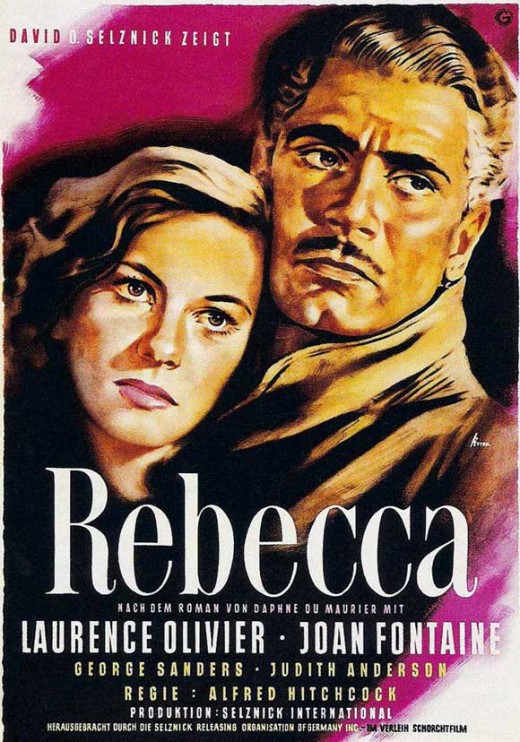
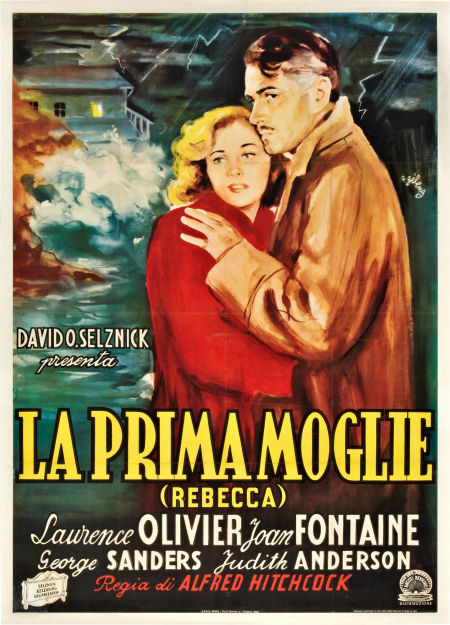
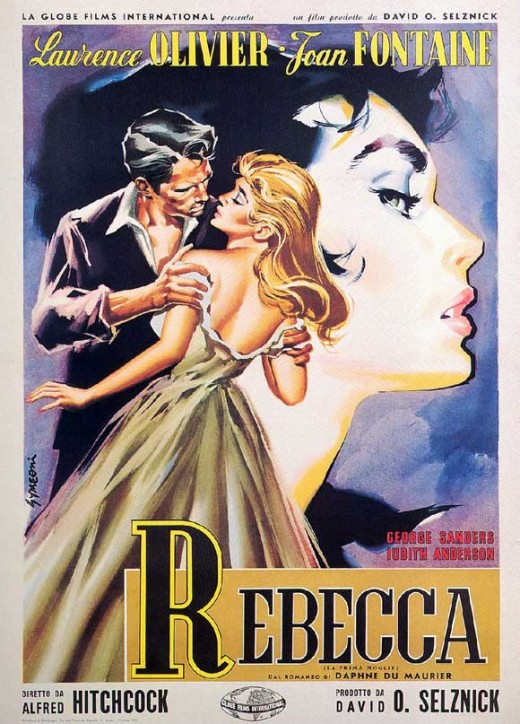
The Critics Wrote –
"Rebecca' is an artistic success whose b.o. lure will be limited. Picture is noteworthy in its literal translation of Daphne du Maurier's novel to the screen, presenting all of the sombreness and dramatic tragedy of the book in its unfolding. More important, it commands attention in establishing Joan Fontaine as a potential screen personality of upper brackets." (Variety)
"An altogether brilliant film, haunting, suspenseful, handsome and handsomely played." (New York Times)
"The mood of haunting fear is magnificently contrived, aided of course by Olivier's intense performance and the really fine acting of Miss Fontaine." (Photoplay)
"Riveting and painful - a tale of fear and class and power." (Time Out, 1988)
"Magnificent romantic-gothic corn, full of Alfred Hitchcock's humor and inventiveness. It features one of Laurence Olivier's rare poor performances; he seems pinched and too calculated - but even when he's uncomfortable in his role he's more fascinating than most actors." (Pauline Kael)
"Admittedly this story belongs to an artificial world more akin to Victorian melodrama than to the present day, but it is nonetheless holding and interesting, with suspense, dramatic situations and an unexpected and effective climax. Hitchcock succeeds in creating an eerie atmosphere and the acting of a practically all-star cast is admirable." (MFB)
"It's not a Hitchcock picture; it's a novelette, really. The story is old-fashioned; there was a whole school of feminine literature at the period; and though I'm not against it, the fact is that the story is lacking in humour." (Alfred Hitchcock, 1966)
